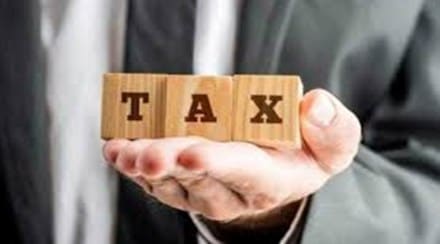Tax saving bank fixed deposits are popular investment options especially for those who are risk averse and yet want to save tax under Section 80C of the Income Tax Act, 1961. All banks provide tax saving fixed deposits (FDs) that come with a fixed rate of interest and also help taxpayers save income tax. The amount invested up to Rs 1,50,000 per financial year in a 5-year tax saver FD qualifies for deduction from total gross income and thus reduces tax liability for that year.
The interest payment can be received monthly, quarterly, half-yearly, annually or as a cumulative option. The term of the deposit in tax saving FD is 5-years and deposits cannot be withdrawn before the end of the term.
While selecting the best tax saving FD in banks, the rate of interest is always a key factor to look at. Many small finance banks may offer a higher rate of interest than what is being offered by the leading banks. So, look for FD with maximum rate over the time period.
Tax saving FD in banks is often compared with post office NSC as both of them offer fixed returns over a 5-year period and also helps to save tax. Interest rate on bank FD with tax saving feature is around 6 per cent while some banks offer 6.5 per cent. If you are not looking at regular income, then you may consider investing in post office NSC that offers 6.8 % compounded annually but payable at maturity. NSC also has a lock-in period of 5 years and helps to save tax.
The maximum that one may invest in the 5-year tax-saving bank fixed deposit for tax benefits in one financial year is Rs 1.5 lakh, while in NSC there is no maximum limit but tax benefit is up to Rs 1.5 lakh.
While investment in NSC and all other post office schemes are sovereign backed, the FD in banks carry deposit insurance of Rs 5 lakh per depositor on per bank basis and, therefore, is the aggregate of the amount across branches of the same bank.
Opening bank FD is easy and simple and can be completed without going to the bank branch. One can start a Fixed Deposit using PAN card and Aadhaar card through the Video Banking services if provided by the bank. Alternatively, as an existing customer, one can apply for a Tax Saving Fixed Deposit by visiting the nearest branch or apply through NetBanking.
However, before investing in bank FD or NSC, make sure you are aware of the taxation of interest income. Interest income earned from both NSC and tax saving bank FD is taxable.The amount of interest income gets added to the ‘Income from other sources’ and then taxed. As the interest income is fully taxable and is barely able to beat inflation, the real return in bank FD or NSC is low or even negative at times.
